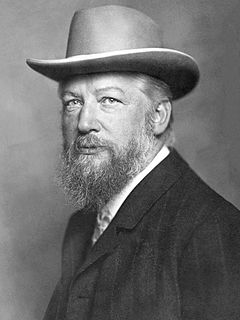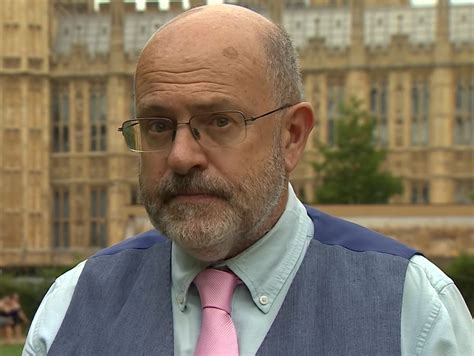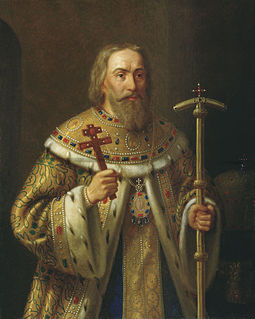A Quote by Wilhelm Ostwald
In other words, the Church acknowledges Science as the higher authority.
Related Quotes
The sovereignty of the state as the power that protects the individual and that defines the mutual relationships among the visible spheres, rises high above them by its right to command and compel. But within these spheres ... another authority rules, an authority that descends directly from God apart from the state. This authority the state does not confer but acknowledges.
It is scripture alone, not conservative Evangelical tradition or any other human authority, that must function as the normative authority for the definition of what we should believe. The authority of the scripture means that all the words in scripture are God's words in such a way that to disbelieve or disobey any word of scripture is to disbelieve or disobey God.
[I]t is contrary to the economy of God for any member of the Church, or any one, to receive instruction for those in authority, higher than themselves . . . if any person have a vision or a visitation from a heavenly messenger, it must be for his own benefit and instruction; for the fundamental principles, government, and doctrine of the Church are vested in the keys of the kingdom.
In the post-enlightenment Europe of the 19th century the highest authority was no longer the Church. Instead it was science. Thus was born racial anti-Semitism, based on two disciplines regarded as science in their day - the 'scientific study of race' and the Social Darwinism of Herbert Spencer and Ernst Haeckel.
As to those other things which we hold on the authority, not of Scripture, but of tradition, and which are observed throughout the whole world, it may be understood that they are held as approved and instituted either by the apostles themselves, or by plenary Councils, whose authority in the Church is most useful, e.g. the annual commemoration, by special solemnities, of the Lord's passion, resurrection, and ascension, and of the descent of the Holy Spirit from heaven, and whatever else is in like manner observed by the whole Church wherever it has been established.
The Church is holy, although there are sinners within her. Those who sin, but who cleanse themselves with true repentance, do not keep the Church from being holy. But unrepentant sinners are cut off, whether visibly by Church authority, or invisible by the judgement of God, from the body of the Church. And so in this regard the Church remains holy.
The invocation of science, of its ground rules, of the exclusive validity of the methods that science has now completely become, now constitutes a surveillance authority punishing free, uncoddled, undisciplined thought and tolerating nothing of mental activity other than what has been methodologically sanctioned. Science and scholarship, the medium of autonomy, has degenerated into an instrument of heteronomy.





































